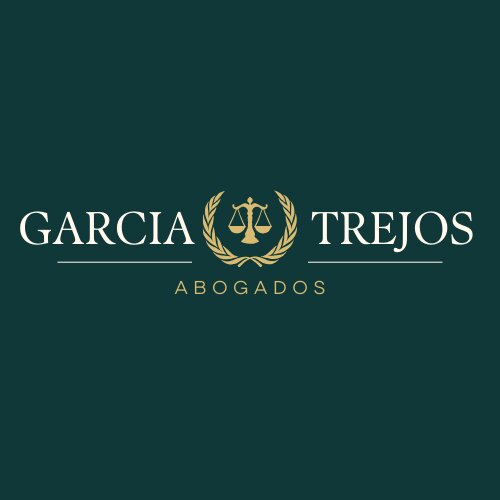Best Collaborative Law Lawyers in Panama
Share your needs with us, get contacted by law firms.
Free. Takes 2 min.
Free Guide to Hiring a Family Lawyer
Or refine your search by selecting a city:
List of the best lawyers in Panama
About Collaborative Law in Panama
Collaborative Law in Panama is an emerging field designed to provide a cooperative, non-adversarial approach to resolving legal disputes, particularly in areas like family law, business disagreements, and contractual disputes. It emphasizes open communication, mutual respect, and voluntary agreement, allowing involved parties to reach a consensus without the adversarial nature of court proceedings. This approach typically involves the participation of specially trained lawyers and other professionals such as financial advisors or psychologists, working together to facilitate a resolution that meets the needs of all parties involved.
Why You May Need a Lawyer
Individuals or businesses might seek legal support under Collaborative Law for various reasons. Some common situations include:
- Divorce or separation where both parties wish to maintain a respectful and amicable relationship post-separation.
- Business partnership disputes that aim for a solution preserving the business relationship.
- Real estate disputes where parties wish to avoid lengthy litigation and instead reach an agreement through negotiation.
- Inheritance disputes among family members who prefer to settle differences amicably for future family unity.
Local Laws Overview
In Panama, Collaborative Law draws on principles similar to mediation and negotiation, often used within the civil law framework to resolve disputes. Panama's legal system supports alternative dispute resolution mechanisms, encouraging parties to reach agreements without advancing to litigation. Key aspects are the voluntary nature of participation, confidentiality in discussions, and legally binding agreements once a consensus is reached. Collaborative Law practitioners in Panama are often attorneys with specialized training in conflict resolution and cooperative techniques.
Frequently Asked Questions
1. What is Collaborative Law?
Collaborative Law is a legal process where parties agree to resolve disputes respectfully and cooperatively without traditional litigation.
2. How is Collaborative Law different from mediation?
While both involve dispute resolution outside of court, Collaborative Law includes legal representation for each party throughout the process, unlike mediation, which may not always involve attorneys.
3. Can any lawyer practice Collaborative Law in Panama?
No, lawyers must undergo specific training in collaborative techniques to practice Collaborative Law effectively.
4. What types of disputes are best suited for Collaborative Law?
Disputes involving ongoing relationships, like family law, business partnerships, and certain employment conflicts, are well-suited for Collaborative Law.
5. Is the Collaborative Law process confidential?
Yes, it is a confidential process, with discussions not disclosed outside of the collaborative meetings.
6. How does one enforce agreements made through Collaborative Law?
The agreements are formalized through contracts or consent orders, making them legally binding and enforceable through the courts if necessary.
7. What happens if Collaborative Law does not result in an agreement?
If no agreement is reached, parties may still choose to proceed to litigation, though the collaborative lawyers cannot represent them in court.
8. How long does the Collaborative Law process usually take?
The duration varies based on the complexity of the dispute and the willingness of parties to cooperate, but it is generally faster than litigation.
9. What are the costs associated with Collaborative Law?
The cost is often less than traditional litigation, given the reduced need for court appearances and quicker resolution timelines.
10. Can one party withdraw from the Collaborative Law process?
Yes, any party can withdraw at any time. However, they must provide notice to all parties and involve legal counsel as per any interim agreements.
Additional Resources
For those seeking additional support or information on Collaborative Law in Panama, consider reaching out to:
- Panama Bar Association: Offers guidance on finding qualified Collaborative Law practitioners.
- Panama's Ministry of Justice: Provides resources on alternative dispute resolution methods.
- Local non-governmental organizations focused on legal aid and family support services.
Next Steps
If you believe Collaborative Law is the right approach for your situation, consider taking the following steps:
- Research and contact a qualified Collaborative Law attorney in Panama.
- Prepare all relevant documentation and a brief outline of the dispute for your initial consultation.
- Discuss the benefits and potential outcomes of the Collaborative Law process with your attorney.
- Ensure all parties involved are committed to the collaborative process to achieve the best possible outcome.
By taking these steps, you can leverage the principles of Collaborative Law to resolve disputes amicably and efficiently in Panama.
Lawzana helps you find the best lawyers and law firms in Panama through a curated and pre-screened list of qualified legal professionals. Our platform offers rankings and detailed profiles of attorneys and law firms, allowing you to compare based on practice areas, including Collaborative Law, experience, and client feedback.
Each profile includes a description of the firm's areas of practice, client reviews, team members and partners, year of establishment, spoken languages, office locations, contact information, social media presence, and any published articles or resources. Most firms on our platform speak English and are experienced in both local and international legal matters.
Get a quote from top-rated law firms in Panama — quickly, securely, and without unnecessary hassle.
Disclaimer:
The information provided on this page is for general informational purposes only and does not constitute legal advice. While we strive to ensure the accuracy and relevance of the content, legal information may change over time, and interpretations of the law can vary. You should always consult with a qualified legal professional for advice specific to your situation.
We disclaim all liability for actions taken or not taken based on the content of this page. If you believe any information is incorrect or outdated, please contact us, and we will review and update it where appropriate.
Browse collaborative law law firms by city in Panama
Refine your search by selecting a city.













